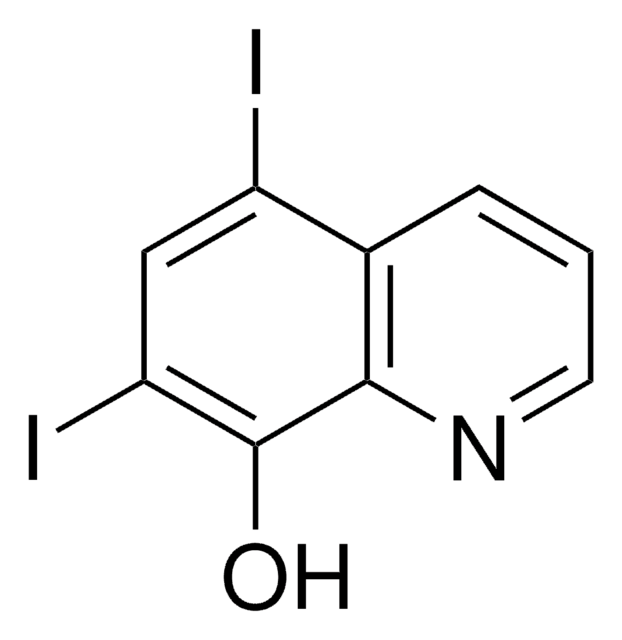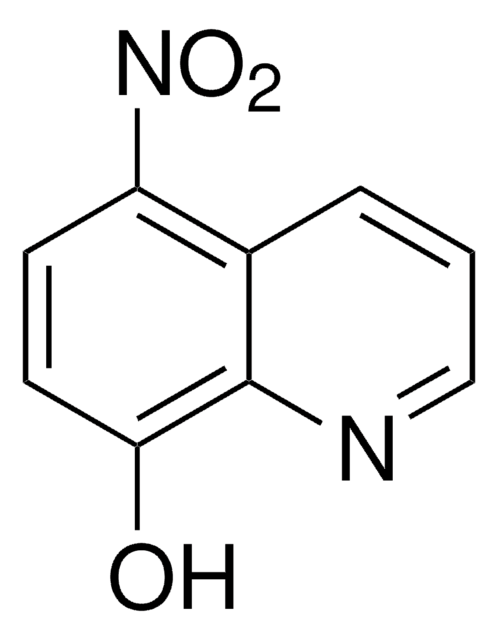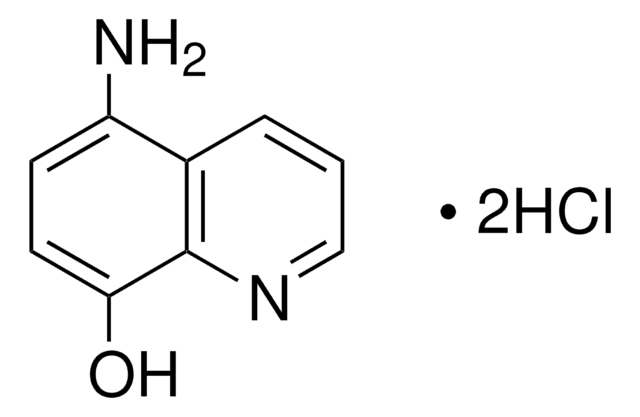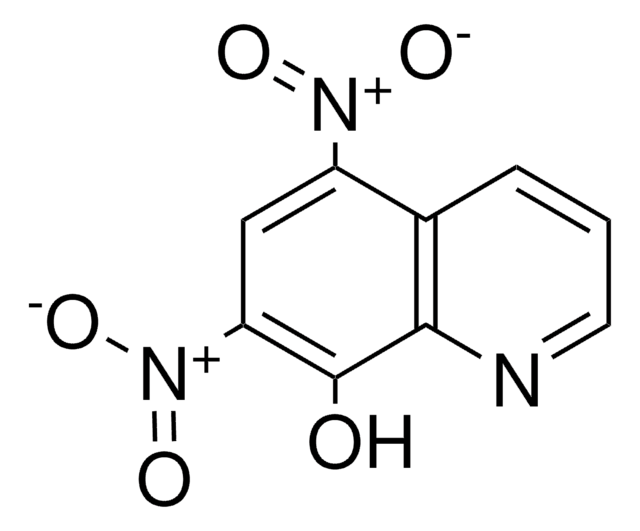130532
5,7-Dichloro-8-hydroxy-2-methylquinoline
98%
Synonym(s):
5,7-Dichloro-2-methyl-8-quinolinol, 5,7-Dichloro-8-hydroxyquinaldine, 5,7-Dichloro-8-quinaldinol, BCM
Sign Into View Organizational & Contract Pricing
All Photos(1)
About This Item
Empirical Formula (Hill Notation):
C10H7Cl2NO
CAS Number:
Molecular Weight:
228.07
Beilstein:
156683
EC Number:
MDL number:
UNSPSC Code:
12352100
PubChem Substance ID:
NACRES:
NA.22
Recommended Products
Quality Level
Assay
98%
mp
108-112 °C (dec.) (lit.)
functional group
chloro
SMILES string
Cc1ccc2c(Cl)cc(Cl)c(O)c2n1
InChI
1S/C10H7Cl2NO/c1-5-2-3-6-7(11)4-8(12)10(14)9(6)13-5/h2-4,14H,1H3
InChI key
GPTXWRGISTZRIO-UHFFFAOYSA-N
Looking for similar products? Visit Product Comparison Guide
Signal Word
Warning
Hazard Statements
Precautionary Statements
Hazard Classifications
Acute Tox. 4 Oral
Storage Class Code
11 - Combustible Solids
WGK
WGK 3
Flash Point(F)
Not applicable
Flash Point(C)
Not applicable
Personal Protective Equipment
dust mask type N95 (US), Eyeshields, Gloves
Choose from one of the most recent versions:
Already Own This Product?
Find documentation for the products that you have recently purchased in the Document Library.
Contact cross-sensitization among quinolines.
A Rodríguez et al.
Allergy, 56(8), 795-795 (2001-08-08)
[Therapeutic efficacy of the combination of chlorquinaldol plus promestriene in infections of the vagina].
S Palacios Gil-Antuñano
Revista clinica espanola, 173(5-6), 297-300 (1984-06-15)
Cutaneous drug reaction case reports: from the world literature.
American journal of clinical dermatology, 3(1), 63-69 (2002-01-31)
Tzu-Shean Feng et al.
Biochemical pharmacology, 82(3), 236-247 (2011-05-21)
4-Aminoquinolines were hybridized with artemisinin and 1,4-naphthoquinone derivatives via the Ugi-four-component condensation reaction, and their biological activities investigated. The artemisinin-containing compounds 6a-c and its salt 6c-citrate were the most active target compounds in the antiplasmodial assays. However, despite the potent
Polymorphism and color dimorphism of chlorquinaldol (5,7-dichloro-8-hydroxy-2-methylquinoline).
A V Pavlova et al.
Die Pharmazie, 40(10), 730-730 (1985-10-01)
Our team of scientists has experience in all areas of research including Life Science, Material Science, Chemical Synthesis, Chromatography, Analytical and many others.
Contact Technical Service









